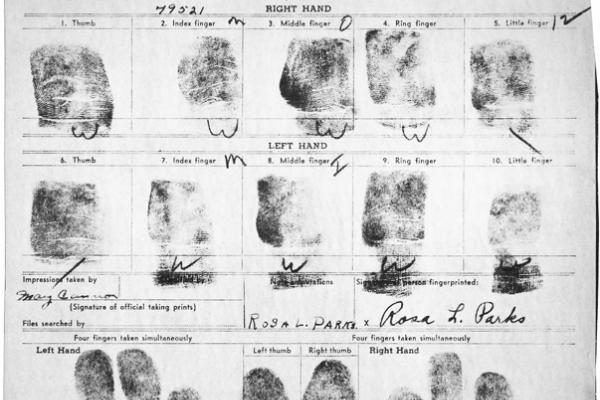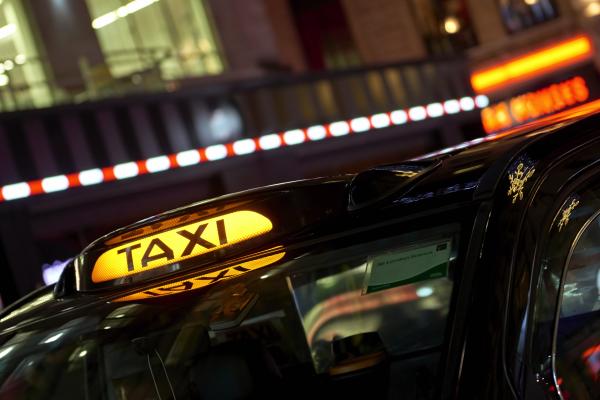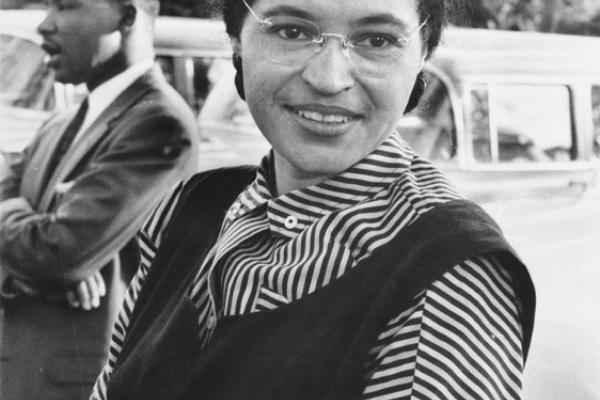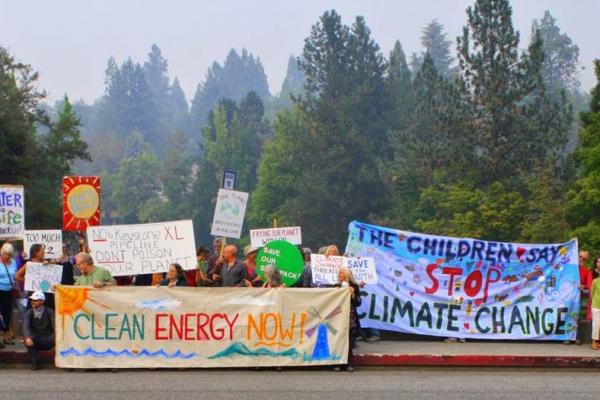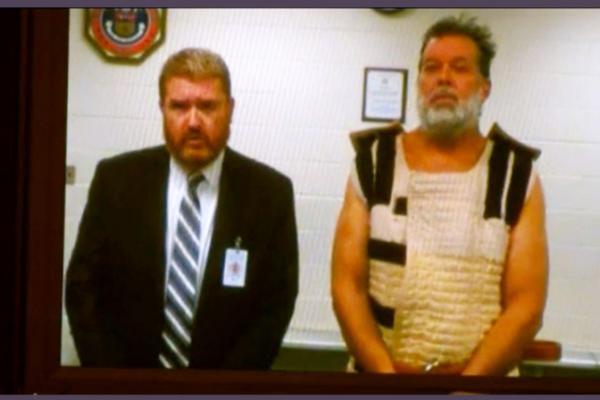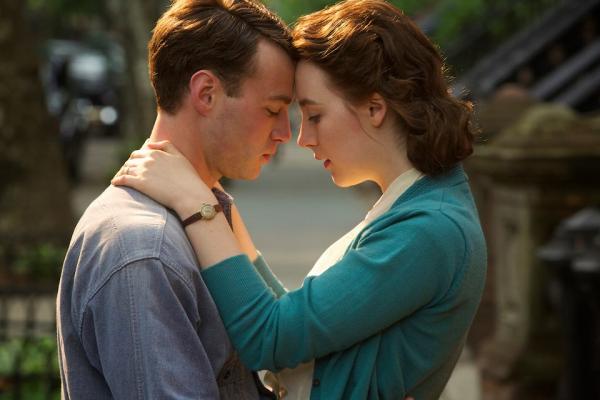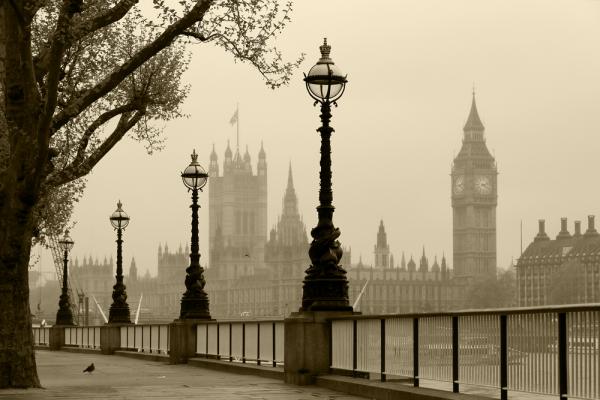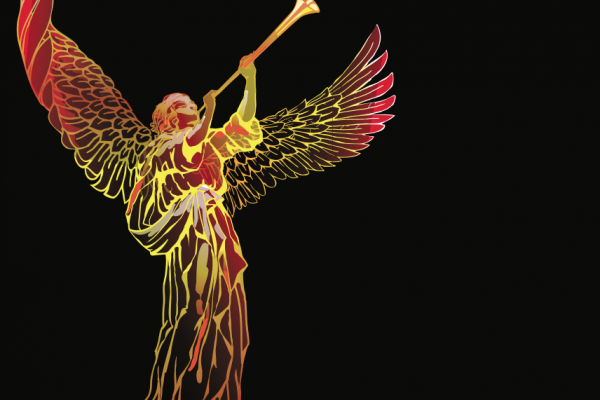Rosa Parks held no elected office. She was not born into wealth or power. Yet sixty years ago today, Rosa Parks changed America. Refusing to give up a seat on a segregated bus was the simplest of gestures, but her grace, dignity, and refusal to tolerate injustice helped spark a Civil Rights Movement that spread across America. Just a few days after Rosa Parks’ arrest in Montgomery, Alabama, a little-known, 26 year-old pastor named Martin Luther King Jr. stood by her side, along with thousands of her fellow citizens. Together, they began a boycott. Three-hundred and eighty-five days later, the Montgomery buses were desegregated, and the entire foundation of Jim Crow began to crumble.
Black Friday, the day after Thanksgiving known for shopping, has become a rallying point for #BlackLivesMatter activists, not just retailers looking for a holidays bump in sales.
After the non-indictment decision in Ferguson, Rahiel Tesfamariam of Urban Cusp created the #NotOneDime boycott campaign, that “calls for a cease on all non-essential shopping from Thanksgiving through Cyber Monday and reclaiming Black Friday as a national day of action and service,” according to the campaign’s website.
When Time Magazine announced that Black Friday sales fell $1 billion this year, many on Twitter called it a victory for #NotOneDime.
Hate crimes in America dipped across the board in 2014, except in the category of anti-Muslim crimes, which rose about 14 percent over the prior year. Given the barbaric Islamic State attacks in Paris last week and elsewhere recently, that latter trend seems destined to accelerate.
The presence of hate crimes against Muslims is no new phenomenon. Prior to the 9/11 attacks, there typically recorded between 20-30 hate crime against Muslims per year and after 2001 that number rose to nearly 500.
This summer, we saw the murder of three Muslim students in Chapel Hill, N.C. On Nov. 15 in London, a man pushed a Muslim woman into an oncoming underground train. And on Thanksgiving Day, a man in a taxicab in Pittsburgh, Pa., shot his driver in the back for being Muslim.
These incidents do not need to be listed as statistics to validate reality but they do need to be heard.
We have told ourselves the story that somehow benevolent white folks acquiesced (and perhaps even saw the error of our ways) and, after a court case, “let” Mrs. Parks and all black folks sit wherever they wanted to on a bus. And, golly, looking back perhaps we were a little stringent in fussing about who sat where on a bus—but that’s all behind us now. Goodness—it sure would be nice if people would just stop talking about race!
The problem with this narrative is that it isn’t true. We in America haven’t dealt with the complicated history of what happened on Dec. 1, 1955 — or what happened before, or after. Many Americans have heard the name “Rosa Parks,” and they may have heard something about a bus. But they don’t know the history. As we look at the profound unrest and distrust in our nation, it is important to know the history.
I was part of the United Methodist delegation to Rio de Janeiro in 1992 during the world’s first major gathering of world leaders, nongovernmental organizations, and corporate heads to focus on climate change and related environmental and development issues. It was clear even then that environmental concerns could not be effectively addressed without simultaneously addressing poverty and inequity.
As of Nov. 30, government officials, corporate leaders, and nongovernmental organizations are meeting for the 21st session of the Conference of the Parties (COP 21) for climate negotiations, this time in Paris. World leaders and other official summit attendees will be protected by greatly enhanced security because of recent terrorist attacks. Civil society won’t enjoy such protections, as indicated by the prohibition of planned demonstrations in Paris.
Some are still demonstrating in Paris, including people committed to nonviolence who formed a 10,000 person human chain and left 20,000 empty shoes — including a pair of the Pope’s shoes — to represent the protestors who are not allowed to demonstrate. Still, around the world, people are gathering to pray for the success of the climate talks and for peace.
For the past five years, Catholic priest Bill Carmody led a weekly Mass in the parking lot of the Colorado Springs Planned Parenthood facility where a gunman killed three people Nov. 27.
In fact, Carmody had been in the parking lot with a handful of protesters that very morning, and he learned about the shooting after he’d left, when people texted him to make sure he was not hurt.
“I am absolutely heartbroken about this,” he said on Nov. 30.
“I’m against all violence, and whether you’re in the womb or outside the womb, killing’s wrong.”
One of the most common criticisms of faith I have heard is this: if there is an all-powerful and loving God somewhere out there, why does this God allow horrible things to happen? In a world where there has always been war, sexual violence, starvation and murder, where is this omnipotent God? Why does he allow these things to happen? Where is she when people suffer injustice?
The Bible gives us plenty of examples of the abuses of the faithful, sometimes even at God's own hand (like in the book of Job). We read of the systemic oppression of the Jewish people and the early Christian church. Through this, God's people were always able to remain steadfast in their faith. Forming a defense of faith in God in the face of realized evil is known as theodicy.
So: In a nation where Blacks have been enslaved, lynched, and raped because of their race, and in time where people must declare that “black lives matter,” how do black Americans form their own theodicy to justify this violence, abuse, and systemic oppression?
And is it necessary to do so?
There are many reasons to recommend Brooklyn — its relatable story for one, its glowing visuals and performances for another. But Brooklyn’s commendable qualities go far beyond this, including the amount of respect writer Nick Hornby and director John Crowley give the movie’s female protagonist. Brooklyn is a movie about hard choices, and for the most part, Eilis makes those choices on her own. At different points in the film, she’s caught between romantic relationships, and familial and personal obligations. But in none of these situations does it feel like her hand is forced. The movie lets us know early that Eilis can take care of herself, and she’s never forced to compromise on that point, though she easily could have been.
Although politics aren’t really on Brooklyn’s agenda, the film also carries an unintentional point on that score worth considering. At a time when the United States is anxious about welcoming refugees and immigrants, this film reminds us that our country is made up largely of immigrants — some who look like Eilis, but also many who don’t.
The British government is launching an independent five-year inquiry under the leadership of a prominent New Zealand-born jurist to examine whether private and public institutions, including churches, failed to protect children from sex abuse.
At a news conference in London on Nov. 27, Justice Lowell Goddard, who will head the inquiry, said the investigation would focus on high-profile allegations of child abuse involving current or former members of Parliament, senior civil servants, and government advisers.
Archbishop of Canterbury Justin Welby asked Goddard to investigate the Church of England first, saying that he would order his own inquiry if there was a lengthy delay, the Anglican Communion News Service reported.
If this is your first Advent, or if it has been awhile, let me catch you up. Advent is the season of expectant waiting before Christmas. It’s a time to wake up, slow down, sit still, listen, and wait. A kind of expected, engaged waiting, with one another. And the first Sunday of Advent — celebrated on the four Sundays before Christmas — always starts with apocalyptic end-of-world scenarios.
Again, an odd way to start. But I think there is wisdom in it. The ancients saw fit to remind us of the harried, violent world into which the Christ child was born. Which, if we are honest, is also like the world in which we find ourselves.
Violence, brokenness, and heartache can take many forms. Each of us experience the heartache of recent weeks. Maybe it was a year-long affair; or Paris; or a lost job; or mass gun violence; or depression; or Laquan McDonald in Chicago, Ill.; or Garret Swasey in Colorado Springs, Colo.
